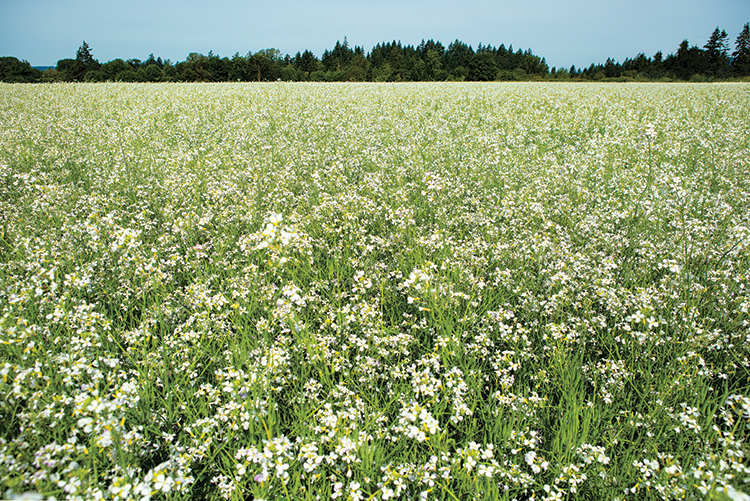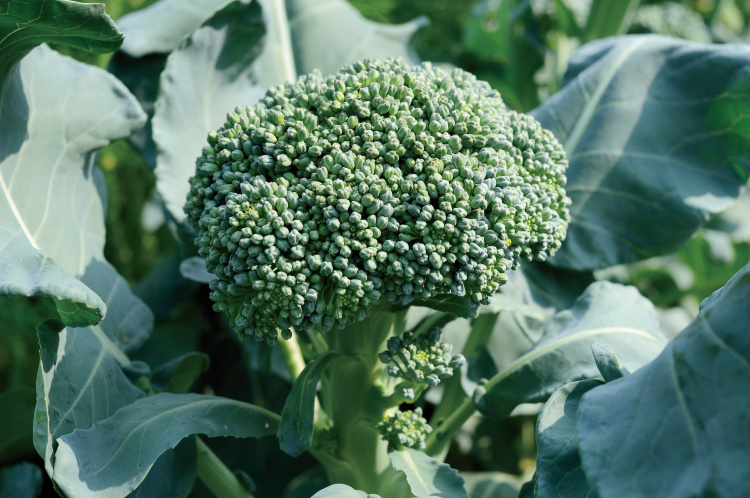Home > Oregon > Oregon Crops & Livestock > Oregon Seed Needs
Oregon Seed Needs

When moms tell kids to eat their carrots, odds are they are instructing them to eat an Oregon product.
The state produces roughly 65 percent of the nation’s carrot seeds and 40 percent of the world’s supply, according to Mike Weber of Central Oregon Seeds in Madras.
Oregon also produces significant volumes of broccoli, cauliflower, Brussels sprouts, beets, spinach, squash and onion seeds. Combined with flower seeds, the industry generates roughly $32 million a year in sales, providing a significant boost to the state’s economy.
Oregon’s carrot seed production is concentrated in a 58,000-acre area of Jefferson County in Central Oregon. The area is also home to onion, parsley and some radish seed production, but carrots dominate its vegetable seed acreage.
“They keep increasing the acres because the American consumer is eating more carrots,” says Gary Harris, who grows carrot seeds near Madras for Central Oregon Seeds.
The crop is difficult to grow, Harris says, requiring extensive ground preparation before planting in the fall, protecting the crop from freeze damage in the winter, and optimizing irrigation water in the spring and summer months in order to maximize yield.
But he says the payback is well worth it, bringing farmers in excess of $4,000 an acre some years.
The paycheck is certainly worth it when the climate helps the farmers achieve success.
“The reason Jefferson County does a good job of raising carrot seed is a stock of good farmers and good companies that help grow and process the seed. It also has a 2,400 foot elevation, warm days, cool nights and honeybees,” Harris says.

Mild temperatures in summer months help honeybees thrive and extend the life of pollen, giving bees plenty of time to move it between the hybrid carrot plants, Harris says.
Vegetable seed production also excels in Western Oregon, where farmers produce significant volumes of cabbage, broccoli, cauliflower, turnips, parsley, mustard, radish, turnips and kale seeds.
Again, the crops require agreeable environmental conditions and extensive crop management expertise to meet the high-quality specs that seed buyers demand. Western Oregon farmers are up to the task.
“We have the best seed growers in the world,” says Gary Weaver of Weaver Seed in Scio. “These guys are professional seed growers, and they’re good.”
Weaver Seed produces vegetable seed for domestic and international markets, including a Japanese market that annually consumes 6 to 8 million pounds of sprouting radish, peas, cress, mustard, broccoli, red cabbage seed and others.
Gary’s son, Chadd Weaver, is general manager of Weaver Seed. He says the company’s ability to maintain strong market share in the highly demanding Japanese market started in the field.
“We have to be very hands-on in the field because the quality specs we have to meet are very high,” Chadd Weaver says.
Once harvested, the company uses state-of-the-art equipment to clean and separate seed by size, weight and even color.
A good percentage of the company’s domestic sales are to Midwest farmers, where radish and turnip seeds supply a burgeoning cover crop market, and in the South, where mustards, collard greens and kale seeds are used to contribute to Southern cuisine, possibly making it a little easier for moms to get kids to eat their vegetables.



